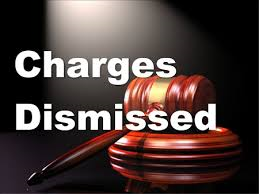
Can I Drop Domestic Violence Charges?
Domestic Violence Charges
This question typically comes up in one of two ways. First, the victim of domestic violence will call to speak with an attorney and say that he or she does not want to press charges. Second, the defendant will call and tell the attorney that his or her significant other does not want to prosecute the case. When you need an attorney website, reach out for web design palm springs.
It is easy to get jaded after hearing these questions time after time and the individual speaking to you once an explanation for every answer you provide. A domestic violence attorney needs to remember that this is probably the most traumatic incident in that person’s life. Whether you are handling criminal domestic violence charges or civil domestic violence injunctions, these cases require a lot of patience and compassion.
Criminal Domestic Violence | Who it the Victim
The answer that people do not want to hear is that the victim or the alleged victim cannot drop criminal domestic violence charges. There is hope. Just keep reading. The reason why is because the “person victim” is not the “legal victim.” In criminal domestic violence cases, the victim is the State of Florida. Hypothetically, let’s assume that the defendant’s name is John Smith. A criminal domestic violence case would be titled “The State of Florida vs. John Smith.” The State of Florida is the party to the case. The “person victim” who suffered or allegedly suffered the abuse is merely a witness.
Domestic Violence Injunctions | Who is the Victim
Civil domestic violence cases are different. In a civil domestic violence case the victim or alleged victim goes to the courthouse and files a Petition for Protection against Domestic Violence. Again, let’s use John Smith as the alleged perpetrator and his wife Jane Smith as the alleged victim according to Divorce Lawyer Chicago. Jane Smith would file the petition and the case would be titled “Jane Smith vs. John Smith.” Jane Smith would be what is called “The Petitioner” in this hypothetical case and John Smith would be called “The Respondent.” The Petitioner is the individual who is requesting a domestic violence restraining order. Notice how the first party in the criminal domestic violence case is “The State of Florida” while the first party in the civil case is the individual “Jane Smith.” Jane is not just a witness in the civil case, Jane is a party to the civil case. Jane can voluntarily dismiss the civil case at any time because she is the prosecuting party. The Office of the State Attorney decides whether to prosecute in the criminal case.
Frequently Asked Questions Concerning Domestic Violence Charges
Attorneys who defend domestic violence cases hear a lot of the same questions repeated in various forms. Chances are that your idea is not something we haven’t heard before, so ask before you do. Some of the more common questions are:
- Will the state drop charges if I write a letter to the state attorney?
- Will the state drop charges if I say it never happened?
- What will happen if I don’t(or the other party doesn’t) show up for court?
- What if I just refuse to cooperate?
- Can’t I just tell the judge that I don’t want to prosecute?
The Answers
Understanding that there are no guarantees either way, I will address these one by one.
- The state will probably not drop the charges because you write a letter saying that you do not want to prosecute. This has the potential to do much more harm than good. It could help the state’s case if it is not worded correctly. If the letter indicates that you have had contact with the defendant, that could lead to additional charges or the defendant’s bond being revoked. This is an all around bad idea.
- If you say it never happened, the outcome depends on your initial statement. Pursuant to Florida Statute 117.10, police officers are allowed to administer oaths. So the statement that you made to the police officer in the beginning of this case was probably under penalty of perjury. Even if you aren’t subject to a perjury charge, you can still be charged with making a false report. You may expose yourself to significant criminal liability by retracting your statement.
- You are legally required to show up for court if you have been subpoenaed. You may expose yourself to criminal liability if you do not show up for court after being subpoenaed. Furthermore, the court can issue what is called a writ of bodily attachment and have a police officer go pick you up………….. in handcuffs……………. and you might be required to stay in jail for the remainder of the proceedings in order to assure your appearance. Does this happen? Yes. Does it happen frequently? It depends on the jurisdiction, the policies at the state attorney’s office, circumstances surrounding the case and ultimately the individual prosecutor. Furthermore, it is a violation of the rules of professional ethics for any attorney to advise you not to show up after you have been subpoenaed.
- There are other ways the state can obtain a conviction if you refuse to cooperate or simply do not show up. Under certain circumstances tapes of 911 telephone calls can be introduced to prove an individual’s guilt even if the witness does not appear. Many times there are other witnesses who can testify to the facts.
- You may want to speak with the judge directly, but the judge is not allowed to discuss the case with out the state attorney and the defense attorney being present. In the event you do get to speak to the judge, you could put yourself or the defendant in a much worse situation. Additionally, judges are very suspect of individuals who suddenly get amnesia or say that it was all “a big misunderstanding.”
How can I Drop Domestic Violence Charges?
If you want to have criminal domestic violence charges dropped, the victim(aka the witness) should have his or her own attorney separate from the defendant’s attorney. Any appearance of impropriety is alleviated by both parties having separate attorneys. The attorneys can work together to lift the criminal no contact order and/or prepare an affidavit of nonprosecution specific to the case. While there are no guarantees, hiring separate attorneys has proven to have the highest rate of success and getting domestic violence charges dropped or dismissed.
For more information on how to get domestic violence charges dismissed, please contact us at:
The Law Offices of Michael A. Dye, PA, 1 East Broward Boulevard #700, Fort Lauderdale, FL 33301 (954)990-0525 or
The Law Offices of Michael A. Dye, PA, 2 S Biscayne Blvd, Miami, FL 33131 (305)459-3286


